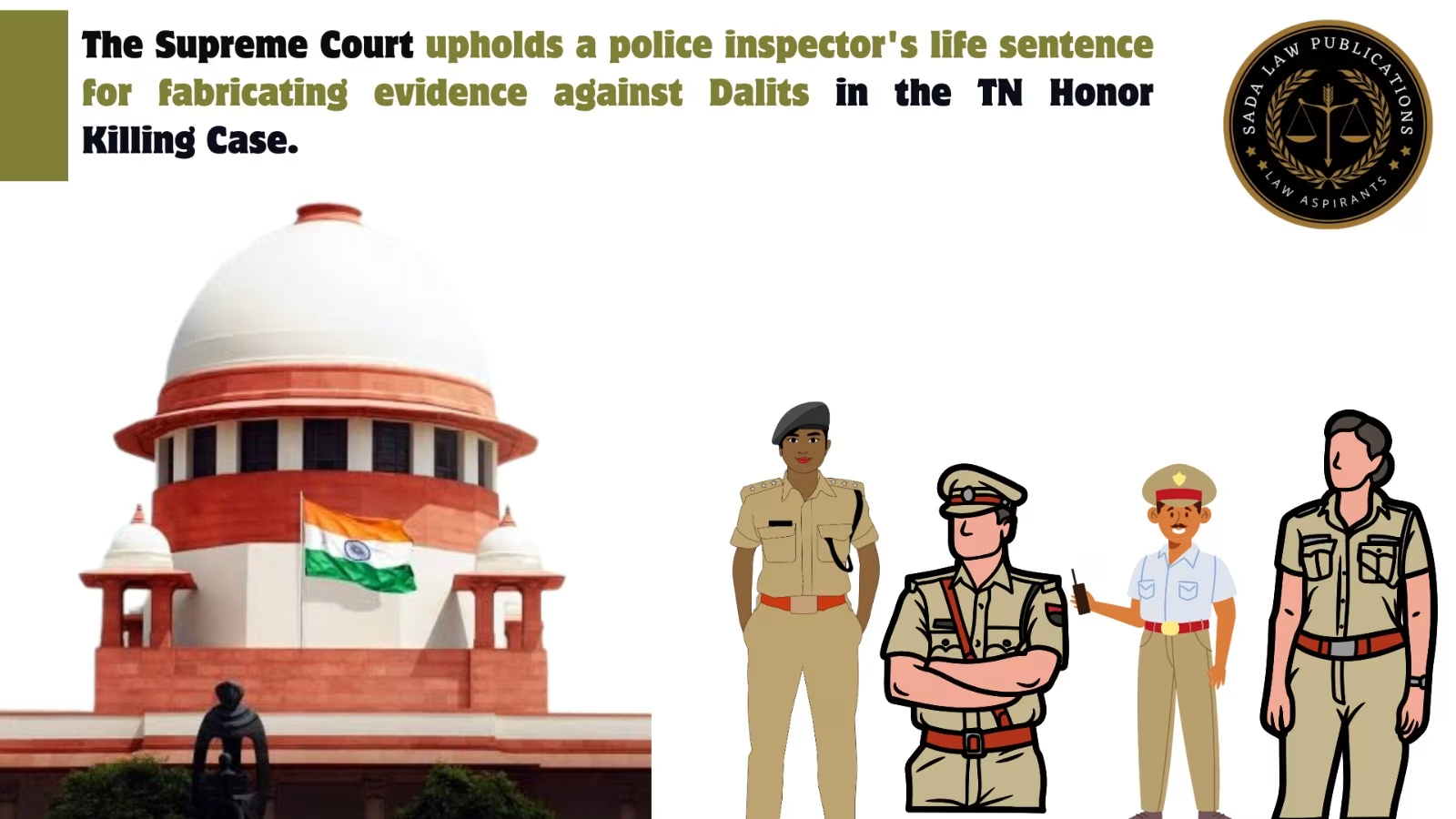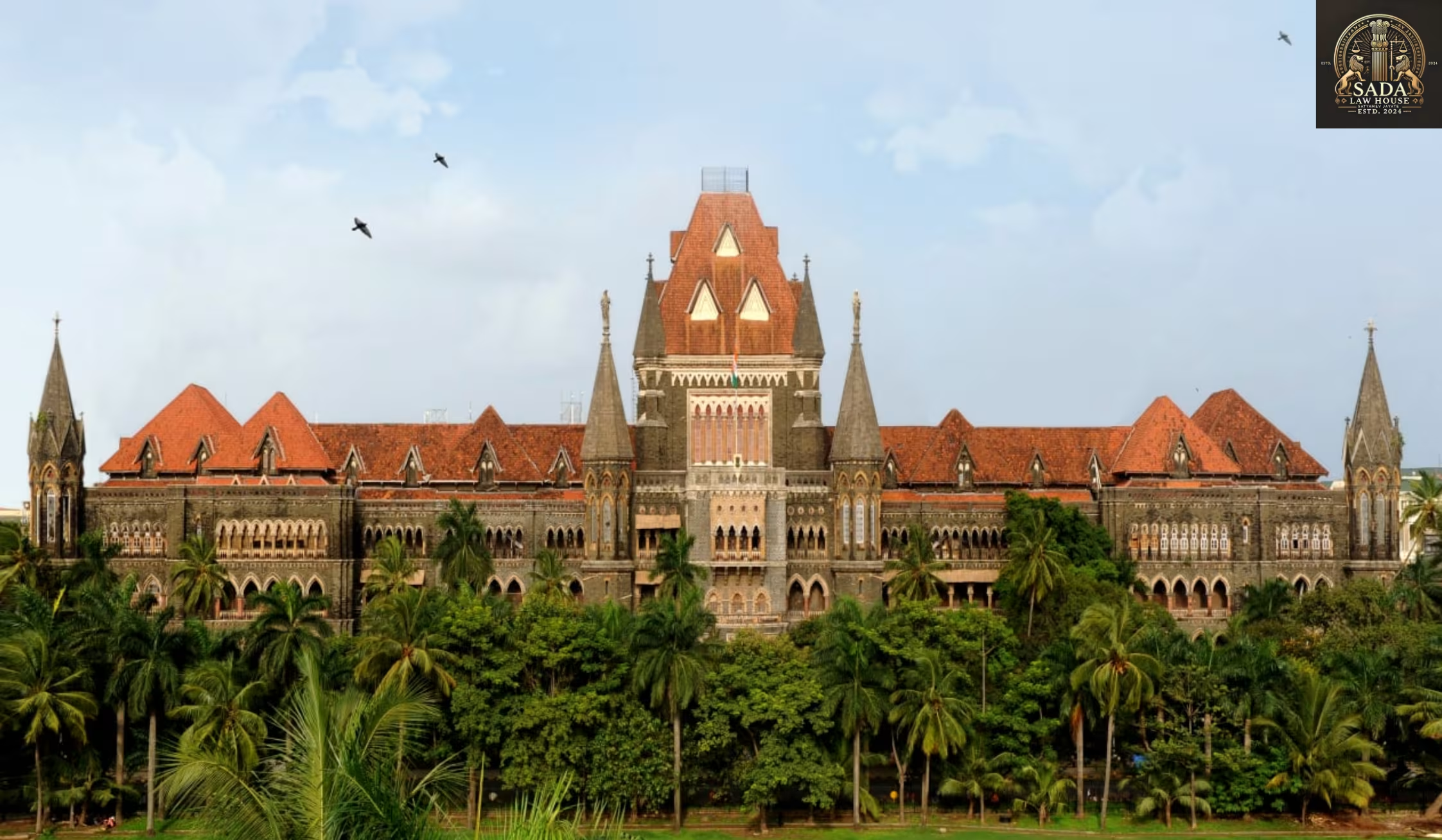Supreme Court Upholds Convictions in 2003 Kannagi-Murugesan Honor Killing and Police Misconduct Case
- MAHI SINHA
- 30 Apr 2025

The Supreme Court upholds convictions in the 2003 Tamil Nadu honor killing case of Kannagi and Murugesan, including life sentences for nine convicts and two police officials charged with evidence tampering.
Supreme Court Upholds Convictions in 2003 Kannagi-Murugesan Honor Killing Case
Justice Delivered After Two Decades in Caste-Based Double Murder
In a landmark judgment, the Supreme Court of India has upheld the convictions in the horrific 2003 honor killing case of Kannagi and Murugesan in Tamil Nadu. The case involved the brutal murder of an inter-caste couple, drawing national attention to caste-based violence, police misconduct, and the misuse of power to shield the guilty.
Background: Inter-Caste Marriage and Tragic Murder
Who Were Kannagi and Murugesan?
Murugesan, a member of the Dalit community and a Chemical Engineering graduate, married Kannagi, a business graduate from the Vanniyar community, on May 5, 2003. Their secret marriage was met with hostility from Kannagi’s relatives, who poisoned and murdered the couple shortly after.
What Sparked the Honor Killing?
The marriage across caste lines enraged Kannagi’s family. The couple’s murder was a result of deep-rooted caste prejudice, an issue that continues to plague many parts of India even today.
Supreme Court Rejects Appeals of Police Officers
Police Officers Found Guilty of Evidence Tampering
The Supreme Court bench comprising Justice Sudhanshu Dhulia and Justice Prashant Kumar Mishra dismissed the appeals of K.P. Tamilmaran (Sub-Inspector) and M. Sellamuthu (Inspector), who were serving at the Virudhachalam police station during the crime.
Tamilmaran was convicted under Section 4 of the SC/ST (Prevention of Atrocities) Act and Section 217 of the Indian Penal Code, receiving two years of rigorous imprisonment.
Sellamuthu was sentenced to life imprisonment under Sections 217, 218 IPC, and Sections 3(2)(i) and 4 of the SC/ST Act.
Failure to Register FIR and Caste-Based Harassment
The court highlighted that both officers failed to file a First Information Report (FIR) immediately, even after learning about the double homicide. When Murugesan’s family approached the police, they were dismissed and subjected to caste-based harassment—a clear violation of Section 154 of the Criminal Procedure Code and the precedent set in the Lalita Kumari judgment, which mandates prompt FIR registration.
Fabricated Confession and False Charges Against Dalits
Nearly nine days post-murder, Sellamuthu fabricated an extrajudicial confession from the first accused. He falsely implicated four Dalits (Murugesan’s family members) and four Vanniyar individuals to mislead the investigation, only acting after media pressure and public outrage.
Attempt to Shield Vanniyar Community Members
Evidence proved that Sellamuthu intentionally manipulated the investigation to protect Kannagi’s Vanniyar relatives. The false FIR dated July 17, 2003, was primarily orchestrated by him, leading to a fabricated chargesheet against innocent Dalits.
The Supreme Court strongly condemned these actions, affirming both the Trial Court’s and High Court’s findings that Sellamuthu had deliberately framed members of the Scheduled Caste community.
Final Verdict: Life Sentences for All Key Accused
The court also upheld life sentences for nine other convicts, including Kannagi’s father and brother, who were directly involved in the honor killing.
Conclusion: A Step Forward in Combating Caste-Based Crimes
The Kannagi-Murugesan case is a grim reminder of the harsh realities of casteism in India. However, this Supreme Court verdict is a strong signal that justice can prevail, even if delayed. The ruling not only punishes the killers but also holds accountable the police officers who failed in their duty, setting a precedent for future cases involving caste-based violence and police complicity.






